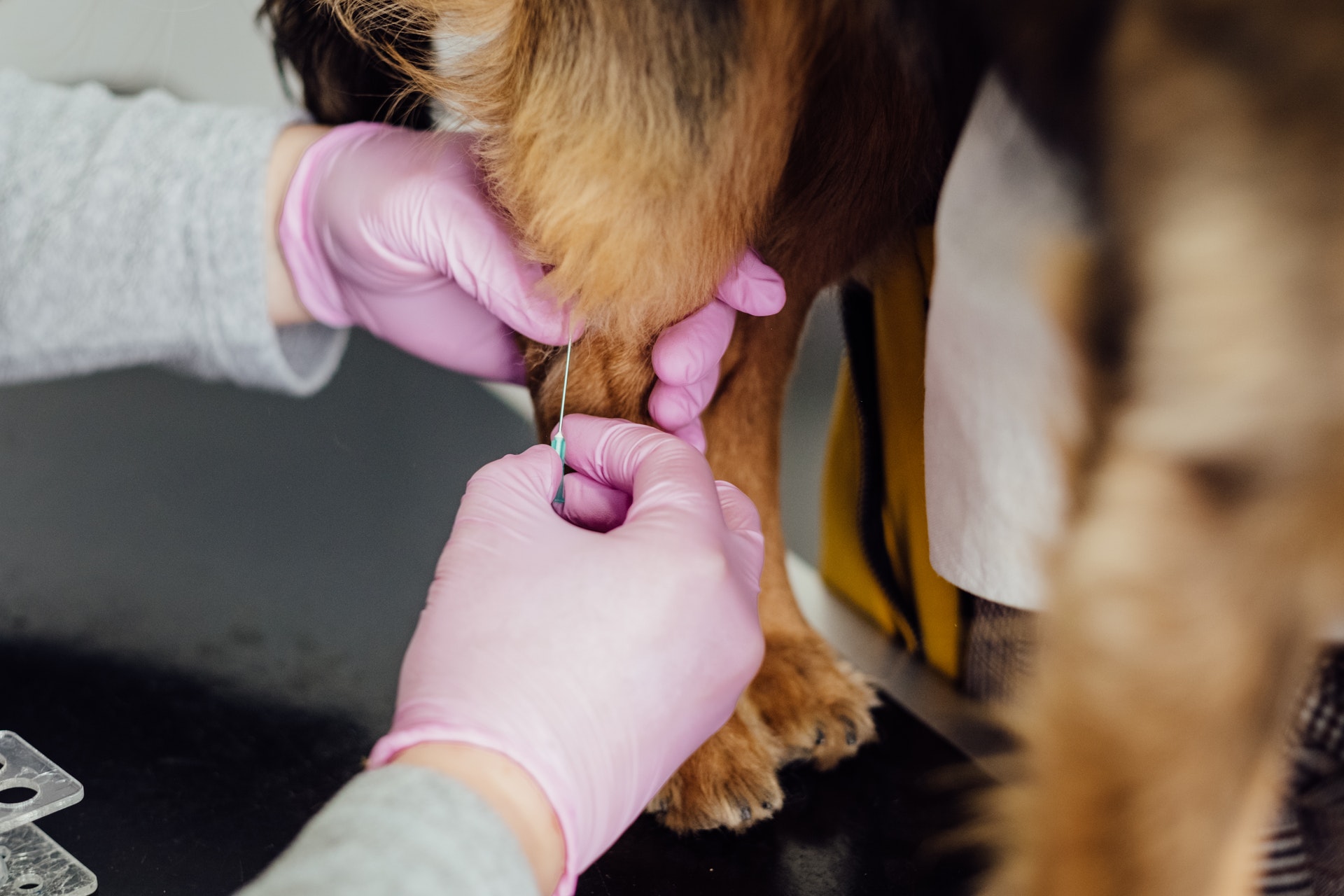No dog enjoys going to the vet. However, for some pooches, it’s truly an anxiety-inducing ordeal which really upsets them. It’s not just difficult for the dog, it’s difficult for the owner and the vet, too! Obviously, it’s not possible to not take your dog to the vet, so how do you address this anxiety?
Desensitization
One of the most widely used and effective methods for combating emotion-based responses in pets is desensitization. This process acts like a vaccine for their phobia because it involves introducing your animal regularly to a watered-down version of the thing that they fear to build up a tolerance to it.
For example, if you have a dog who is afraid of the vet and starts to get upset as soon as you put them in the car, you might start by getting the dog used to getting in the car but then driving somewhere that they enjoy like a dog park. Next time, you could drive towards the vets but not actually go inside. After that, you could stop at the vets but not enter the surgery, and so on until finally, you have built up to go inside the vets’ office.
Desensitization is most effective when it is planned and executed with the aid of a trained professional, either a certified applied animal behaviorist (CAAB or ACAAB) or a board-certified veterinary behaviorist (Dip ACVB).
Counter conditioning
It can also be effective to use desensitization in conjunction with counter-conditioning. Counter conditioning means conditioning your dog so that they associate positive feelings with the thing they fear. For example, you might give your dog lots of praise or a treat each time they go into the vet’s office for a vet appointment, and then they will start to think of it as a positive experience.
Pet vaccination is obviously very important for overall health, but it can also be a great opportunity to practice counter conditioning. Vaccinations are over with so quickly that they are a great type of visit to use to build up to other longer ones, while heaping the praise and treats on your pet to create a positive association.
Pay a social visit
Most vets will allow you to bring your vet to the surgery to see the place and allow your dog to get fuss and attention from everyone there. These types of social visits to the vet can go a long way towards combating anxiety.
Exercise
Anxiety may leave your pet feeling wired and overstimulated. A great way to compensate for this is to ensure that you exercise them before the vet appointment, as this will help alleviate some of the stress that they are feeling.
Practice at home
A primary reason that some dogs dislike the vet is because they don’t like a stranger touching their paws and ears and poking at them, which seems fair enough! If you practice doing these things with your dog at home yourself, they will become more accustomed to being handled in this way and hopefully won’t mind so much when the vet does it.



